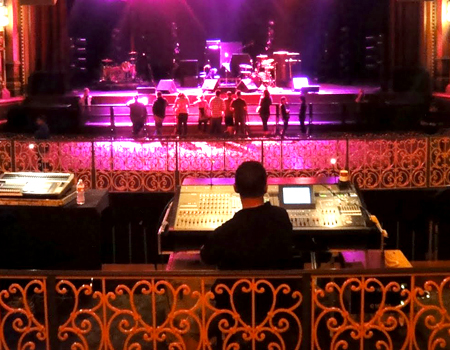
Oakland City Auditor Courtney Ruby released a performance audit of the Fox Theater Renovation Project, which documented the expansion from a $33 million project to approximately $91 million.
According to the audit, the final renovation project costs increased 172 percent from the initial $33 million budget. A number of factors led to this dramatic increase, including a significant expansion of the project’s scope, failure to conduct a comprehensive financial feasibility study, a project management structure that lacked independence, insufficient legislative oversight, and poor contract administration.
“It’s clear that no single entity, be it the Administration, City Council, project manager, or contractor, was ultimately responsible for the successes and failures of Fox’s renovation,” said Auditor Ruby. “Consequently, this leadership vacuum produced a scenario where no one is ultimately accountable to the public, and yet it’s Oakland citizens via their tax dollars who end up holding the bag for a project that skyrocketed by 172 percent.”
In 1996, the City of Oakland’s Redevelopment Agency purchased the Fox Theater to begin work on a master plan to renovate this historical performing arts center. In December 2004, the City Council approved the “Basic Renovation” for the Fox Theater, scaled to be a 500 to 600-seat cabaret-style venue within the shell of the existing historic theater. In December 2006, the construction project, the largest of its kind in the U.S., got underway, and the Fox Theater reopened in February 2009 after being closed for 35 years.
Findings of the audit include:
Contract oversight and administration were inadequate as payments were authorized in excess of contract ceilings, payments were made for unsupported costs, and over payments were made for developer/management fees.
• $1,179,437 was paid to the project manager, California Capital Group (CCG), that exceeded the “not-to-exceed” contract limits
• $178,726 in unsupported costs were paid to the project manager, CCG
• $178,843 in overpayment of developer/management fees were paid to CCG
• $2.1 million in audited change orders were paid without adequate review
• Turner’s (contractor) fees grew by more than $800,000 from the original contract of $1,779,000
• Despite an approximate $58 million growth in project scope and cost increases, the City Council was not provided with project alternatives or options to reject or modify the project.
“With the redevelopment of Oakland’s former Army Base already underway, it is critical that the City adopts the appropriate administrative measures and internal controls to ensure that this more than half billion dollar effort will not duplicate past mistakes,” said Auditor Ruby.
In response to the City Auditor’s performance audit, the City Administrator’s office recently issued a document stating that it is not in full agreement with all the audit findings. The document states that, “When the 2001 estimated full renovation cost is adjusted for inflation, the actual cost at completion in 2008 would have been $98.3 million, 8% below actual costs, not 172% above cost as stated in the Audit.”
According to the City Administrator’s response, the audit report inaccurately characterizes the renovation project cost as increasing by 172 percent because it compares the cost of the initial phase of the project ($33 million) to the cost of the full historic restoration ($91 million), an “apples-to-oranges” comparison.
The City Auditor’s office is currently performing audits of the Oakland Police Department, Parking Department, Online Payment, and Accounts Payable. Earlier audits reviewed the City's hiring practices, public campaign financing, funding for children and youth services, library services, and other public concerns.
